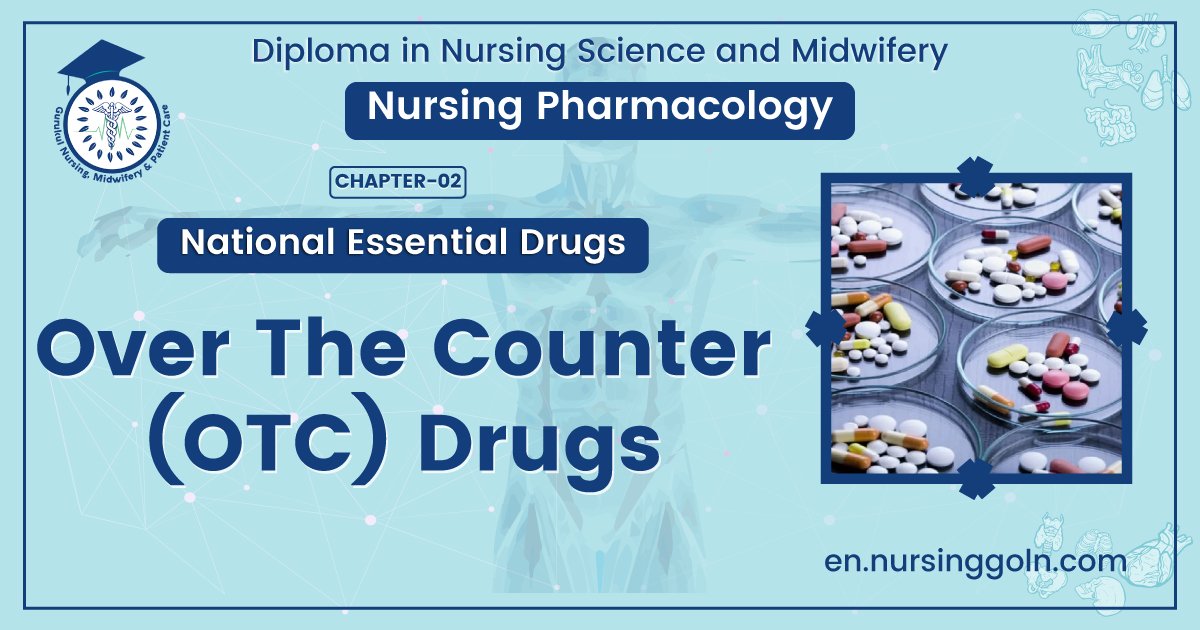Over The Counter Drugs (OTC) – This book covers the entire syllabus of “Pharmacology” prescribed by BNMC- for diploma in nursing science & midwifery students. We tried to accommodate the latest information and topics. This book is an examination set up according to the teachers’ lectures and examination questions.
At the end of the book, previous questions are given. We hope in touch with the book students’ knowledge will be upgraded and flourish. The unique way of presentation may make your reading of the book a pleasurable experience.

Over The Counter Drugs (OTC)
Those drugs which can be used/ supplied without prescription (medical supervision) are called Over the Counter (OTC).
The OTC ingredient should be safe and effective for consumer use without medical supervision, e.g. topical hydrocortisone 0.5% and 1%, paracetamol, aspirin, antacid, antiemetic, diphenhydramine, ORS (oral rehydration saline).
Importance of OTC Drug:
It is important for the clinician to be familiar with OTC-drugs for the following three reasons
- Many of the ingredients of OTC-drugs are effective in treating common ailments and it is important to be able to help the patient select a safe, effective product
- Many of the ingredients contained in OTC-drugs may worsen existing medical conditions or interact with prescription medication.
- The misuse or abuse of OTC drug may actually produce significant medical complications.

Examples of OTC Drugs:
Systemic OTC Drugs:
- Paracetamol
- Ranitidine
- Omeprazole
- Antacid
- Ketotifen.
- Chlorpheniramine
- Naproxen Sodium
- ORS
Topical OTC Drugs:
- Ketoconazole
- Miconazole
- Clotrimazole
- Xylometazoline

Advantages of OTC drugs:
- They are easily available & comparatively cheap.
- Decrease the load of hospitalization.
- Sometimes greatly affect the improvement community health; e.g. ORS decreases the childhood mortality rate. The more the availability of ORS is, the less the death in diarrhoeal disorder.
- Treatment of minor illness can be done easily.

Disadvantages of OTC drugs:
- Increased chance of maltreatment/wrong treatment.
- More chance of complication of diseases.
- May misguide or delay the right diagnosis of the disease.
- Chance of drug induced disease; e.g. chronic renal failure in Paracetamol abusers who
- chronically uses the drug for mild to moderate pain.
- Chance of acute overdose or suicidal attempt; e.g. Paracetamol poisoning.
Read more:
